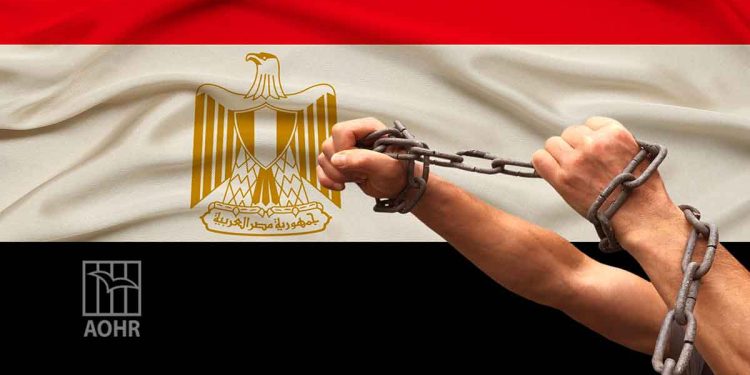Two Egyptian prisoners died in less than 24 hours due to medical negligence in Egyptian prisons. The two prisoners were identified as Ahmed Moselhi, who died in Gamasa prison, and Adel Qassem, who died in the Tenth of Ramadan prison.
The two detainees’ deaths confirm the Egyptian prison authorities’ total indifference to the prisoners’ lives and reflect the use of medical negligence policy as a form of torture in Egyptian prisons.
Ahmed Moselhi, 41, died after spending 10 years in Gamasa prison, while Adel Qassem, 60, died in the Tenth of Ramadan prison after spending less than a month in prison.
The two inmates faced the same fate despite being held in two different facilities and being of two different ages after being refused access to proper medical care and early release on health grounds.
The deaths of the prisoners occur a few days after Suhaib Saad Amara, who passed away in Gamasa prison after completing a 10-year sentence. At the time, a number of human rights organisations urged the opening of an investigation into his death. However, the Egyptian authorities refused to respond.
There were 26 cases of medical negligence-related deaths in Egyptian prisons in 2023, however, the Prison Service did nothing to save the lives of tens of thousands of prisoners. In contrast, some prisons increased the suffering of the inmates by limiting or prohibiting visits and sports time.
With the deaths of Moselhi and Qasim, there have now been at least 1,033 deaths in Egyptian prisons during the tenure of the current regime as a result of intentional medical negligence, torture, or inhumane detention conditions.
In spite of this tragic reality, the Egyptian government continues to tout its purported reforms to the prison system, asserting that they are compliant with international standards. In Egypt, there are currently close to 100 prisons, half of which were constructed under President Abdul Fatah el-Sisi. The conditions of the prisoners’ detention have not improved as a result of these purported reforms, where they continue to experience overcrowding, subpar medical care, and poor food quality.
It should be noted that the Egyptian Prison Service provides some imprisoned businessmen with selective medical care, which reflects the corruption, inequality, and injustice in Egyptian prisons.
Arab Organisation for Human Rights in the UK appeals to all international and human rights organisations to draw attention to the ongoing willful medical neglect in Egyptian prisons.
Additionally, it calls on the international community, political parties, and media outlets that support human rights around the world to apply political, economic and legal pressure to the Egyptian government in order to end the prisoners’ plight and grant them access to their legal claims to freedom, justice, and humane treatment.































